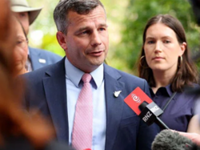When I was a child, I had the good fortune to receive an education that set me up to be who I am today.
My headmistress was a true educator. She believed that young women needed to have a rounded and holistic educational experience and thus made sure that we studied both the arts and sciences. There was also a healthy focus on values and ethics, the lessons from which I keep close to my heart until today.





